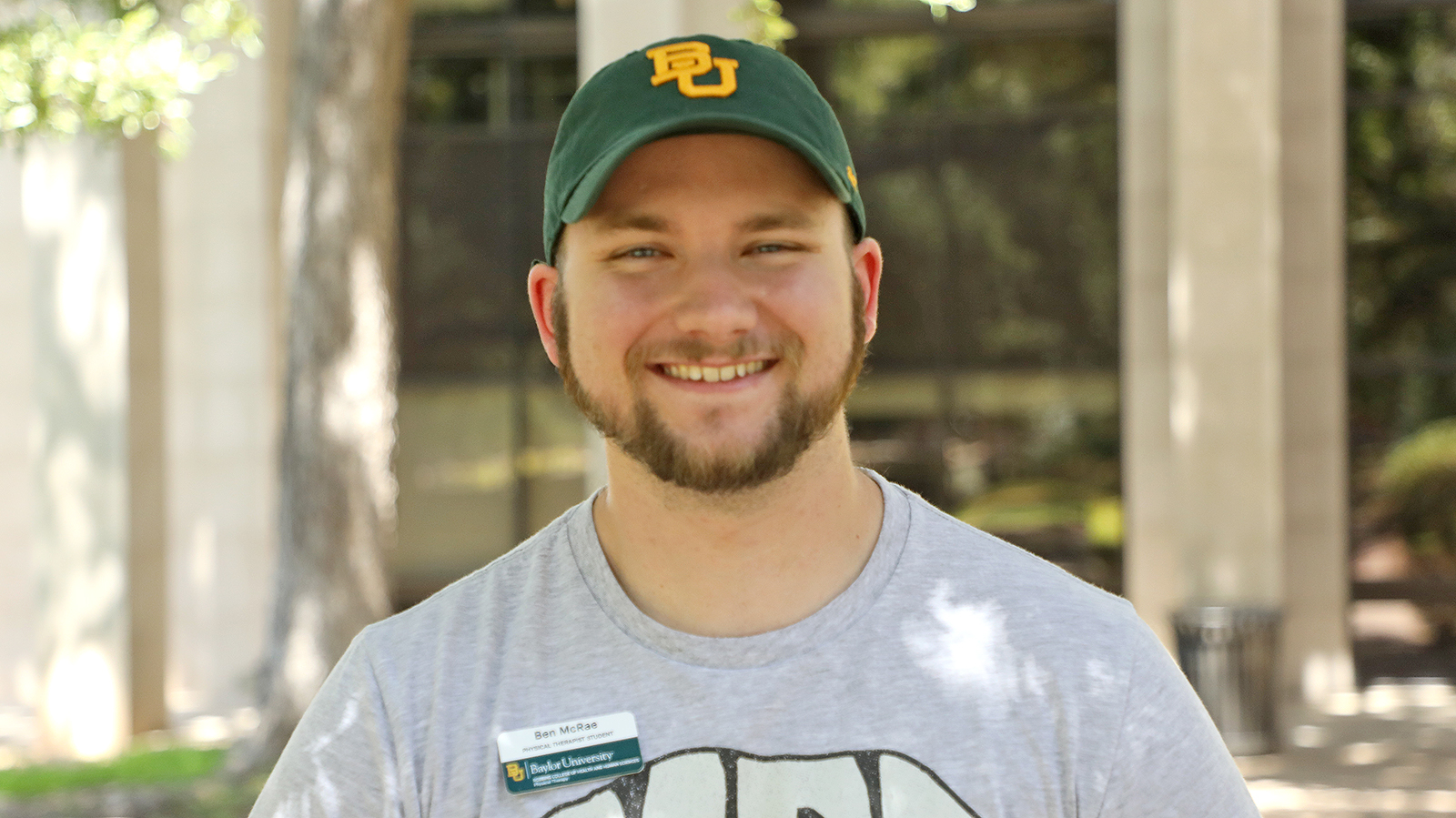Student Spotlight: Ben McRae, PTA

In 2017, with his recently acquired Bachelor’s in Public Health degree from LSU Shreveport in hand, Ben McRae found himself considering the next steps in his career. Medical school was one option, but a friend’s mom happened to be the director of a physical therapy assistant (PTA) program in nearby Bossier City, Louisiana. With her encouragement, he entered the program and graduated in 2018, passing his board exam and becoming a licensed PTA shortly afterwards.
“There are a lot of PTAs who have worked in that role their whole life and are very successful and fulfilled,” McRae says. “But I always had it in the back of my mind that I wanted to go back to school.”
He was still considering medical school or maybe even a physician assistant program, but after beginning his work as a PTA, McRae discovered a true passion for the field of physical therapy.
“It sounds cliché, but working in physical therapy made me realize that was what I wanted to do,” he says. “I liked the physical aspect of it and the natural, personal approach.”
A year after his graduation from PTA school, McRae applied for and was appointed to the Advisory Committee of the Louisiana Physical Therapy Board. In this role, he helps with licensure investigations for physical Therapists (PTs) and PTAs. He also has the opportunity to meet and network with PTs and PTAs across the state. When he was ready to start looking for PT schools, these connections were a welcome source of recommendations. One recommendation in particular rose to the top—Baylor University’s Doctor of Physical Therapy (DPT) program.
For McRae, Baylor checked all of the boxes. The program’s hybrid structure would allow him to continue living in Louisiana, and the January program start-date and two-year curriculum matched his desire to begin his studies as soon as possible and to finish the program swiftly.
Another appeal of the Baylor DPT program was that it gave McRae the opportunity to continue working as a PTA—although he shares this information cautiously.
“It’s doable, but I don’t know if it’s very smart,” he laughs. “My advisor, Dr. Shane Koppenhaver, has been very positive and encouraging about my choice to continue working, but he was also very upfront and honest about the rigor of the program and how working could affect my grades. It was a big decision.”
As a husband and father, McRae chose to continue working part-time as a student in the Baylor DPT program, but he credits a supportive wife, flexible employer, and the organization of the Baylor program for his ability to succeed. Immersion labs in Waco are scheduled at the very beginning of students’ program and exam dates are shared at the start of the trimester. For McRae, this allowed him to plan ahead with his PTA and family schedule, knowing when he would be traveling or need to devote extra time to studying.
The experience McRae brings to the program as a licensed PTA has also been helpful in some ways. While the stipulations vary by state, as a PTA in Louisiana, McRae was trained in and provides treatment for clients; however, he cannot perform an evaluation.
“There are two other PTAs in my cohort with similar experiences. I’d say we’re very comfortable with the clinical aspect. We’re knowledgeable about how to interact with patients. But the medical and diagnostic side is new,” he shares. “We’ve described it as having our driver’s license and knowing how to drive but now having to go back to school to learn how to mechanically diagnose cars too.”
“There’s some knowledge to rely on, but there’s definitely a lot to learn.”
McRae also brings a unique set of experiences to the program due to his work with the Louisiana Physical Therapy Board. He keeps his copy of the Louisiana Practice Act in his bag, and although licensure requirements are state-specific and Baylor DPT students are from across the country, McRae is still able to speak to the importance of board rules and regulations. He is also able to encourage his fellow students to get connected and involved with the physical therapy boards in their own states.
McRae and his cohort will graduate from the Baylor DPT program in December 2024. As he reflects back on his first few trimesters in the program, he points to the faculty as one particular highlight.
“When I came into that first orientation and lab, that was when I realized that Baylor faculty were these legendary PTs with this high caliber of expertise,” he says. “The fact that they’re just here showing me a skill and teaching me is awesome.”
McRae tells the story of Dr. Louie Puentedura, Clinical Professor of Physical Therapy, assigning students a study that he had published and written. As McRae was reviewing it, he thought it seemed familiar. He started searching through his old PTA school files and found the same study.
“I thought, ‘Oh my gosh, I read this study. My other college used your study in their education, and now I’m here learning from you!’ It was crazy,” he laughs.
McRae still has another year to go in the Baylor DPT program, but he is already considering his next steps. The two-year timeline of the program presents opportunities that traditional two-and-a-half and three-year models do not. With a shorter time to degree and subsequent licensure, completing the two-year hybrid Baylor DPT program certainly has its benefits.
“Ultimately, I think they’re preparing us to be the most marketable PTs we can be by completing the program as quickly as possible,” McRae says. “It’s been a whirlwind, but very positive and fulfilling. It’s definitely worth it.”